CRE Investors React To Federal Rate Increases
As many expected, the Federal Reserve recently decided to raise interest rates to the range of 1.5 percent to 1.75 percent, and the increases are likely to continue in 2018.
In March, the Federal Open Market Committee meeting announced its expectation for “further gradual increases” this year. Interest rates are extremely important in the evaluation and performance of any commercial real estate investment due to their impact on the present value of future cash flows. Higher rates make borrowing more expensive for owners, and tend to raise cap rates and reduce property values. However, higher rates also mean a stronger economy, which tends to be associated with a stronger real estate market.
So how will these increases affect commercial real estate investors? Alex Zylberglait, Marcus & Millichap’s senior managing director of investment, delves into how the increase in interest rates is impacting both foreign and domestic investment in U.S. real estate.
How will the rise in interest rates influence the commercial real estate market?
Zylberglait: The Federal Reserve recently raised interest rates by a quarter of a percentage point and is expected to raise rates twice more this year. As a broker who handles investment sales targeting properties in the range of $1 million to $20 million, which is the most active segment of the CRE market in South Florida, I can say that I haven’t seen much of an impact in the commercial real estate market yet. But having said that, I do anticipate a delayed effect, with rates influencing the market in the next three to six months. What I am beginning to see are prospective buyers locking in rates for long-term financing.
On the other hand, I am seeing more properties hitting the market, as property owners seek to cash out before cap rates go up as a result of rising interest rates. For example, one of my clients who owns an office building in Miami has a mortgage that’s maturing and debt coming due. Due to rising interest rates coupled with a maturing mortgage, my client wants to unload the property now instead of selling in a higher interest rate environment. But rising interest rates is one of many factors positioned to impact the CRE market this year.
How will higher interest rates impact foreign vs. domestic investment?
Zylberglait: The impact of rising interest rates will most likely be less on foreign investment than on domestic investment. The foreigners who use financing pay a much lower interest rate in the U.S. than in their home country.
However, what we’re seeing is foreigners unloading their CRE assets. For the past seven years, foreign investors have steadily moved away from buying pre-construction condos and turned their attention to CRE properties in Miami. As the Fed raises interest rates coupled with the real estate cycle nearing an end, foreigners are now cashing out for different reasons. Based on where we are in the real estate cycle, foreign investors are selling to capitalize on the rapid appreciation that the South Florida market experienced in the last five years. They no longer expect a significant appreciation so many of them have no reason to hold on to their properties.
Can you give an example?
Zylberglait: One of my clients from Argentina, who has been buying commercial properties in South Florida for nearly a decade, is now selling a single-tenant building occupied by Starbucks in one of Miami’s hottest markets, Doral. He recently renegotiated a nice lease deal with Starbucks to maximize sales proceeds in order to invest in value-add opportunities in the region.
Another one of my clients, Metro Capital Partners, which invests capital from Colombia in Miami, is another example of this trend. Metro recently sold an office building in Miami-Dade County’s West Kendall submarket for $7.9 million, after acquiring it in a 2014 distress sale for $3.2 million. For the most part, these investors are selling to either buy more assets in South Florida or pay down debt on other properties. Foreign investors continue to see our region as a safe place to grow and protect their capital even as interest rates continue rise.
What impact will the rate increase have on the South Florida market?
Zylberglait: In this real estate cycle, a significant amount of assets in South Florida were priced aggressively, with 2015 being the peak. As the market stabilizes or levels off, a rise in interest rates will contribute to faster stabilization of prices, resulting in investors preparing for slower growth and appreciation.
However, some of my clients who are more yield driven are looking outside of South Florida to places like Orlando and Tampa. We are starting to see a migration of investors and developers northward. For example, Dezer, a well-known developer in South Florida, recently purchased a shopping mall in Orlando with plans to redevelop it into an entertainment complex.
Another example is Riviera Point Development Group, a South Florida developer that purchased 3.3 acres on 11551 International Drive, a few miles from Seaworld, where he plans to build a dual-branded hotel, La Quinta Inns and Suites, and Tryp by Wyndham. Riviera Point developed five office buildings in South Florida and a Radisson Red Hotel near Miami International Airport in this real estate cycle. When it came time to purchase more land, Riviera Point’s CEO Rodrigo Azpurua chose Orlando because of land values and appreciation, which can mitigate the impact of rising interest rates. But having said that, I may add that land values in Orlando today are not as advantageous as they were a year ago.
How will the CRE market respond as interest rates continue to rise?
Zylberglait: Everyone knew rising interest rates were coming and as a result, we haven’t seen much of a reaction in the market. There’s no panic. However, the value for Class B and C assets is softening and I expect to see a divergence between Class A, B and C assets.
Source: Commercial Property Executive


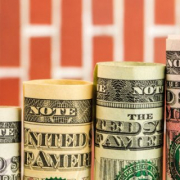
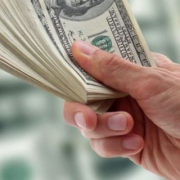
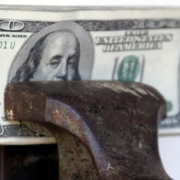
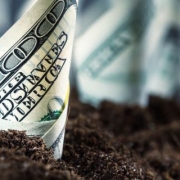





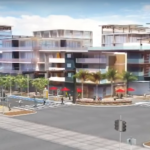
Leave a Reply
Want to join the discussion?Feel free to contribute!